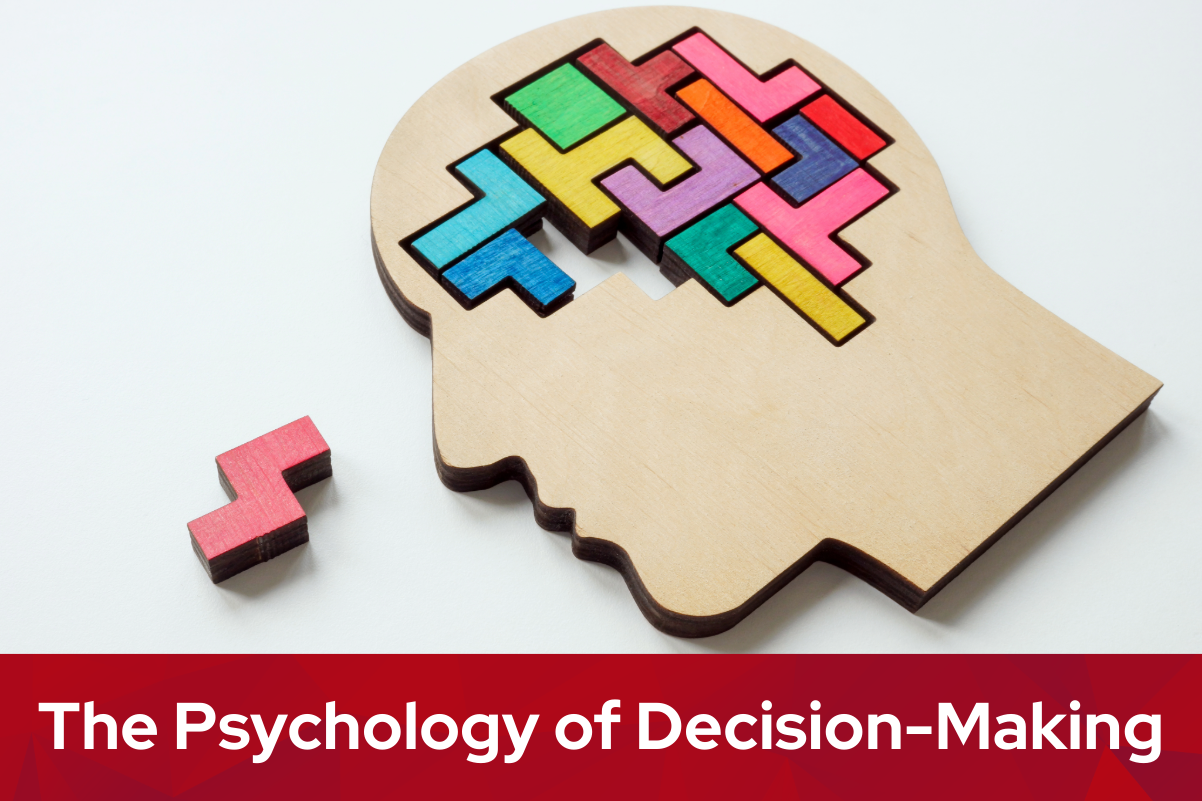How Our Minds Influence Results, Outcomes, and Decision-Making
In the realm of clinical laboratory management, understanding the psychological factors that influence decision-making is crucial for optimizing outcomes and ensuring accurate results. Cognitive biases, which are systematic patterns of deviation from norm or rationality in judgment, play a significant role in how lab managers make decisions. In the context of lab management, these biases can significantly influence decision-making, leading to suboptimal outcomes and impacting the accuracy of results. Recognizing and mitigating these biases can lead to more effective lab management and better patient outcomes.

Examples of Cognitive Bias
Understanding the types of cognitive biases that can impact decision-making is crucial for laboratory professionals to ensure accurate and effective lab management. As discussed in an article by Today’s Clinical Lab, various cognitive biases can affect decision-making in clinical laboratories, such as confirmation bias, anchoring bias, and overconfidence bias, among others. These biases can lead to systematic errors and skewed interpretations of lab results, ultimately affecting the quality of patient care. The article elaborates on how these biases manifest in the lab setting and offers strategies for mitigating their impact.
To illustrate an example, confirmation bias refers to the tendency to search for, interpret, and remember information in a way that confirms one’s preconceptions. For lab managers, this could mean giving undue weight to test results that align with expected outcomes while disregarding those that don’t. According to a review by Vincent Berthet in “Frontiers in Psychology,” this bias can lead to the reinforcement of incorrect hypotheses, impacting the overall quality of lab results(Frontiers).
Another example of cognitive bias is anchoring bias, which occurs when individuals rely too heavily on the first piece of information they receive (the “anchor”) when making decisions. In a lab setting, initial test results or preliminary diagnoses can unduly influence subsequent decisions, even when new, contradictory information emerges. The American Medical Association (AMA) highlights this bias as particularly prevalent among medical professionals, including those in laboratory settings, affecting the objectivity of subsequent evaluations (American Medical Association).
Mitigating Cognitive Biases
To mitigate the impact of cognitive biases in lab management, several strategies can be implemented. Educating lab personnel about cognitive biases is the first step toward mitigating their effects. Awareness can help individuals recognize their own biases and take corrective measures. According to a review in “Evidence-Based Nursing,” ongoing training and workshops focused on cognitive biases and their impact on decision-making are essential in creating a culture of critical thinking and self-reflection (Evidence-Based Nursing).
Implementing structured decision-making processes, such as standardized checklists and protocols, can help reduce the influence of biases. These tools ensure that all relevant information is considered and that decisions are based on objective criteria. The American Medical Association offers guidelines and frameworks that can be adapted for lab management settings (American Medical Association).
Conducting regular audits of decision-making processes and providing feedback can help identify patterns of bias and areas for improvement. Constructive feedback mechanisms foster a learning environment where biases are acknowledged and addressed. The CDC offers resources on conducting audits and giving feedback in healthcare settings. They highlight the role of these practices in improving patient safety and laboratory quality.
Conclusion: Incorporating these principles into your lab management practices can lead to substantial improvements. At WSLH Proficiency Testing, we understand the importance and appreciate what it takes to maintain quality decision-making practices. We are committed to supporting laboratories in achieving the highest standards of accuracy and reliability in their test results. Understanding the psychological factors that influence lab management can lead to improved decision-making, enhanced performance, and better outcomes. By addressing cognitive biases through effective communication and the development policies and procedures, clinical laboratory managers can create a more efficient and positive work environment. Embrace these strategies to not only enhance lab operations but also to contribute to the overall mission of delivering high-quality patient care.

